 |
Navy – Merchant Marine Memorial
Washington, District Of Columbia |
Located in Lady Bird Johnson Park on Columbia Island, the Navy-Merchant Marine Memorial |
 |
Fort Zachary Taylor Historic State Park
Key West, Florida |
Named after 12th president Zachary Taylor, the U. S. |
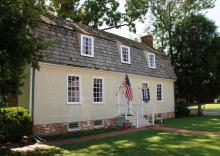 |
Wright’s Chance/Queen Anne’s County Historical Society
Centreville, Maryland |
Dating back to the 1700s, Wright's Chance is a Colonial period plantation house. |
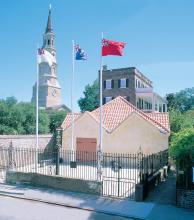 |
The Powder Magazine
Charleston, South Carolina |
Construction began on The Powder Magazine in 1712 and was completed by 1713, making it |
 |
Del Webb Sun Cities Museum
Sun City, Arizona |
The Sun Cities Area Historical Society/Del Webb Sun Cities Museum is dedicated to the p |
 |
Steamship Historical Society of America
East Providence, Rhode Island |
THE STEAMSHIP HISTORICAL SOCIETY OF AMERICA was established in 1935 as a means of bring |
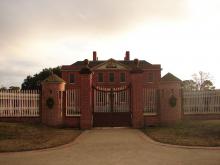 |
Tryon Palace
New Bern, North Carolina |
Tryon Palace is a modern recreation of the original palace, which served as the royal g |
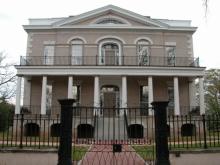 |
Hampton-Preston Mansion & Gardens
Columbia, South Carolina |
One of Columbia's oldest remaining historic houses, the Hampton-Preston Mansion was hom |
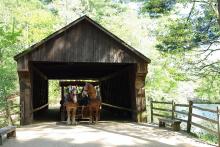 |
Old Sturbridge Village
Sturbridge, Massachusetts |
Old Sturbridge Village is the largest living history museum in New England, spanning o |
 |
Fort Washington
Fort Washington, Maryland |
At this 180-year-old fort visitors explore the the outer defense for Washington, DC dur |
 |
Tennessee Civil War National Heritage Area
Murfreesboro, Tennessee |
The Tennessee Civil War National Heritage Area tells the whole story of the Civil War, |
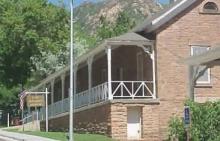 |
Fort Douglas
Fort Douglas, Utah |
The 1862 fort was built to protect telegraph and railroad lines from the Indian populat |
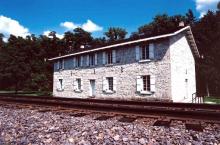 |
First Territorial Capitol
Fort Riley, Kansas |
Governor Andrew Reeder picked this location, away from the proslave |
 |
Fort Union National Monument
Watrous, New Mexico |
Fort Union was established in 1851 as the guardian of the Santa Fe Trail. |
 |
Fort Negley
Nashville, Tennessee |
At the Visitors Center, the film, "The Fall of Nashville" reenacts how the Union Army c |
 |
Battle Of Plattsburgh Center And War Of 1812 Museum
Plattsburgh, New York |
The Battle of Plattsburgh Association runs the Battle of Plattsburgh Interpretive Cente |
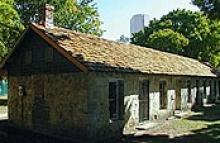 |
Fort Dallas And The William Wagner House
Miami, Florida |
Located in Miami's Lummus Park, Fort Dallas and the William Wagner House offer unique i |
 |
Scotchtown
Beaverdam, Virginia |
Charles Chiswell obtained 9,976 acres on what was then the western part of New Kent Cou |
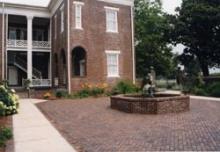 |
Rippavilla Plantation
Spring Hill, Tennessee |
The mission of Rippavilla Plantation, Incorporated is to preserve, restore and interpre |
 |
Historic Rosedale Plantation
Charlotte, North Carolina |
The neighbors called it "Frew's Folly," though the reason remains obscure. |
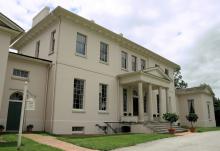 |
Riversdale House Museum
Riverdale Park, Maryland |
This beautifully restored 19th century estate, which offers tours to the public, was ho |
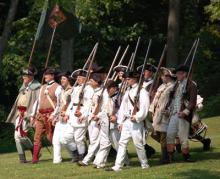 |
Brandywine Battlefield Park
Chadds Ford, Pennsylvania |
On September 11, 1777, the Patriot army under George Washington came face to face with |
 |
Vicksburg National Military Park
Vicksburg, Mississippi |
Patriotism during the Civil War was deep-rooted, and over 6 |
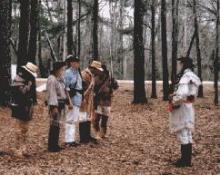 |
Fort Toulouse/fort Jackson
Wetumpka, Alabama |
Nestled at the confluence of the Coosa and Tallapoosa Rivers 15 miles north of Montgome |
 |
Fantasy Of Flight Museum
Polk City, Florida |
The stunning art deco facility is a perfect setting to display this priceless collectio |
 |
Daniels County Museum & Pioneer Town
Scobey, Montana |
The Daniels County Museum & Pioneer Town is located on 20 acres just west of Scobey |
 |
Philipsburg Manor
Tarrytown, New York |
Cross the bridge over the river into Philipsburg Manor and step back in time. |
 |
Ames Historical Society
Ames, Iowa |
The mission of the society is to identify, record, collect, preserve, and provide acces |
 |
Pimeria Alta Museum
Nogales, Arizona |
Fray Marcos de Niza first entered the Santa Cruz Valley in 1539, well before the first |
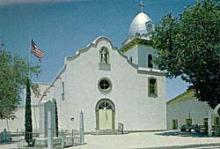 |
Ysleta Mission
El Paso, Texas |
The church was partially destroyed during a disastrous fire in 1907, but was reconstruc |































